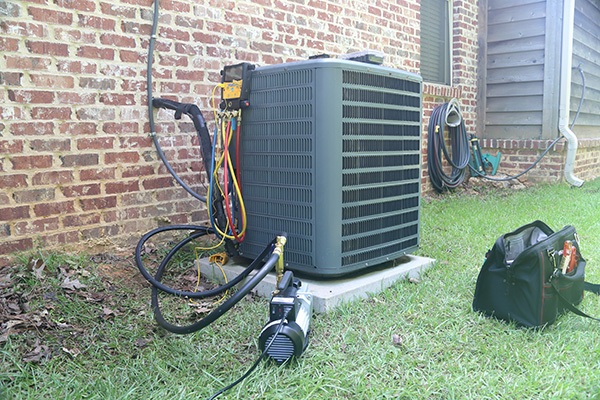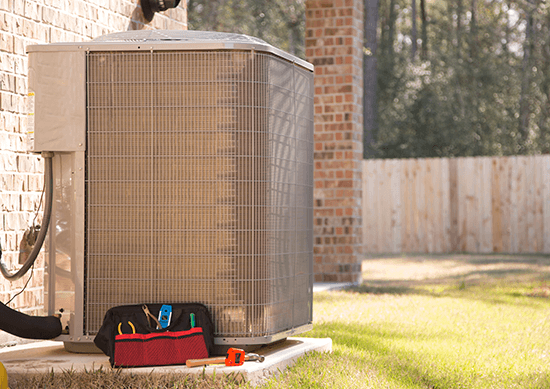Signs Your HVAC Needs Replacement

Let’s dig into some telltale signs that your HVAC system might be due for a replacement.
Uneven Temperatures Throughout Your Home
Ever walk into your living room and feel like you’ve stepped into the Arctic, only to find your bedroom feeling like a sauna? Well, that’s a sign of trouble. If you’re experiencing hot and cold spots in your home, it could mean your system lacks the capacity or is incorrectly sized for your living space.
Your System is Constantly Running
If your HVAC seems to be running an endless marathon, it’s waving a red flag. Constant running may indicate reduced efficiency, likely due to aging, the need for a good cleanup to clear out debris, or the call for a new compressor.
Climbing Utility Bills
Even if your home is as cozy as can be, but you notice your HVAC system working overtime, watch out for those utility bills. There are newer, energy-efficient systems out there that not only keep you comfortable but also save you money on your monthly expenses.
It’s Getting Old
Like a seasoned pro, your HVAC system has a retirement age. While many systems call it quits around the 10 to 15-year mark, it’s not set in stone. Factors like maintenance and how well it was initially installed play a role. Are you wondering how to extend the life of your system? Easy. Prioritize annual maintenance.

Spending a Lot on Repairs
If your HVAC system is becoming a regular repair call, it’s sending a clear message. High repair costs might make it worthwhile to explore the world of energy-efficient replacements (look out for rebates to make installation less expensive!)
For minor repairs like capacitors, contactors, or electrical switches, sticking with a repair might be sensible. However, if you’re facing issues like leaks or compressor problems, it’s a strong signal that a replacement could be the smarter investment.
So Should I Repair or Replace?
When faced with the decision of whether to replace or repair your HVAC system, John Henry's Plumbing, Heating, Air, and Electrical encourages you to consider the following variables:
- Efficiency of Existing System: Assess the overall efficiency of your current system. Upgrading to a newer, more energy-efficient model could lead to long-term savings on your energy bills.
- Past Repairs: If your system has required frequent and costly repairs, it might be more economical to invest in a new, reliable system.
- Condition: Evaluate the physical condition of your HVAC unit. If it’s nearing the end of its lifespan and experiencing consistent issues, replacement may be a more practical choice.
- Quality of Existing System: Older systems may lack the advanced features and energy-saving capabilities of newer models. Upgrading can enhance your home’s comfort and energy efficiency.
- Operation Noise: Unusual noises could signal worn-out or damaged components. A quieter, modern system could provide a more peaceful living environment.
- Time Left at Current Residence: Consider your long-term plans. If you’re planning to stay in your current residence for an extended period, investing in a new HVAC system ensures long-lasting comfort.
- Comfort Delivered by Existing System: If your current system struggles to maintain consistent comfort levels, an upgrade can provide better temperature control and improved indoor air quality.
At John Henry's Plumbing, Heating, Air, and Electrical, our experienced technicians consider these factors to provide you with a comprehensive assessment. We aim to guide you toward the most suitable decision for your specific situation, ensuring optimal comfort, efficiency, and cost-effectiveness.
